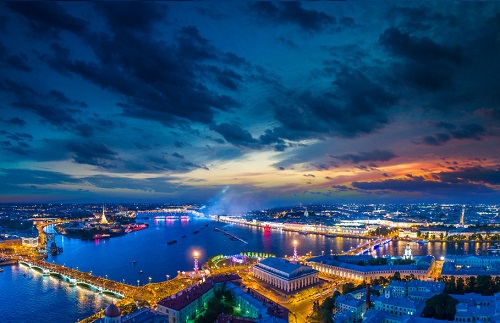If you are intending to give birth in Russia, you will need to make a decision early on regarding whether to use the public or the private sector. The standard of the public healthcare system in Russia is not as high as what you may be used to in Europe. Many expats therefore opt for private cover.
Most expats recommend that you should avoid the public healthcare system if at all possible, and private sector maternity care is currently booming, with some top of the range maternity clinics and hospitals being built across the country. We will look at some of your options below.
How to decide on a birth plan
A birth plan is a list of what you would like to have happen during labour and afterwards. It is written so that your doctor knows what your wishes and expectations are.
- Where do you want to give birth?
- Who do you want to have with you (e.g. your partner)?
- What kind of birth do you want (e.g. vaginal birth or a Caesarian)?
- Do you need any birthing aids?
- Do you want pain relief, and if so, what kind?
- What kind of birthing environment would you prefer?
Most births in Russia take place in hospitals. Water births and home births are uncommon and unregulated. Recent reports suggest, however, that home birthing is becoming increasingly popular, as a result of the poor provision in state-run hospitals. Russian women prefer to take risks at home than in hospital.
In 2018, the infant mortality rate in Russia was at about 6.1 deaths per 1,000 live births, compared with the OECD average of 3.6 deaths (the UK and the USA also have somewhat higher rates than this average, but not as high as Russia).

If you are in a large urban centre, such as Moscow, you should be able to access the services of a doula. A doula will be able to help you with the birth plan and other aspects of your pregnancy. Some centres will provide some alternative birthing methods, such as yoga balls. It is wise to translate your birth plan into Russian, but some midwifery centres offer services in other languages too, including English, French and German.
Private maternity provision in Russia has been increasing in recent years. The leader in private maternity care in Russia is the MD Medical Group (MDMG), which started operations in 2003 and has been building maternity units across the country. It opened a flagship $150 million private maternity hospital in Moscow in 2006 and has continued to expand.
Note that, in the public sector, medical personnel may not speak much, if any, English. You are more likely to be allowed to have your partner with you during the birth and afterwards in a private institution.
Maternity care in Russia
Many Russian women give birth in maternity hospitals, known as ‘maternity houses,’ which are run by the state but often have private contracts.
Public healthcare in Russia covers maternity care, but hospitals tend mainly to be in cities, and they are often overcrowded. If you think you might be pregnant, your first point of call should be your GP, who will issue you with a certificate of your pregnancy. You will need to take this to future appointments at the hospital of your choice.

Your GP/gynaecologist will make appointments for scans, blood tests and ultrasounds throughout the course of your pregnancy.
The International Federation of Gynaecology and Obstetrics (FIGO) can put you in touch with the Russian Society of Obstetricians and Gynaecologists, who can supply you with details of obstetric care while you are in the country. You will need to register your pregnancy with the city gynaecological office, which will organise your tests. It will also provide you with the relevant documentation for the maternity hospital.
You can access antenatal classes that are geared towards English speakers in Moscow. For example, the EMC Maternity Hospital at the European Medical Centre in Moscow runs them. However, you may have problems finding any elsewhere.
Once you have given birth, you can expect to remain in hospital for around three days. This will obviously be longer if you have a C-section. Ask for details of breastfeeding groups, as you should find a number of these in Russia. You should also be able to access postnatal classes in the larger cities, and some of these will be English-speaking. Yoga classes for mums are also available.
You will need to obtain a birth certificate from the local civil registry office. Take along your proof of identity, plus your marriage certificate and a copy of your visas. You will also need to alert your national embassy. It is advisable to do this before the birth, as they can then give you advice regarding registration.
The Social Insurance Fund (Fond Socialnovo Strahovanya Rosiyskoy Federaciy/ Фонд Социального Страхования Российской Федерации) regulates maternity leave, which is 140 days at 100% of your salary – 70 days before the birth and 70 days after. During maternity leave, women receive an allowance from the Social Insurance Fund from insurance contributions. This corresponds to 100% of your average salary over the previous two years. A maximum amount is determined every year (RUB2,301.37 per day in 2020). Paternity leave is not regulated by law in Russia, and if the father does take time off, he will not be paid.
Will my baby be a Russian citizen?
Even if one of their parents is Russian, your child will not automatically be a Russian citizen. The Russian parent will need to submit a formal request for citizenship to the Russian authorities for the baby to be recognised as a Russian citizen.

